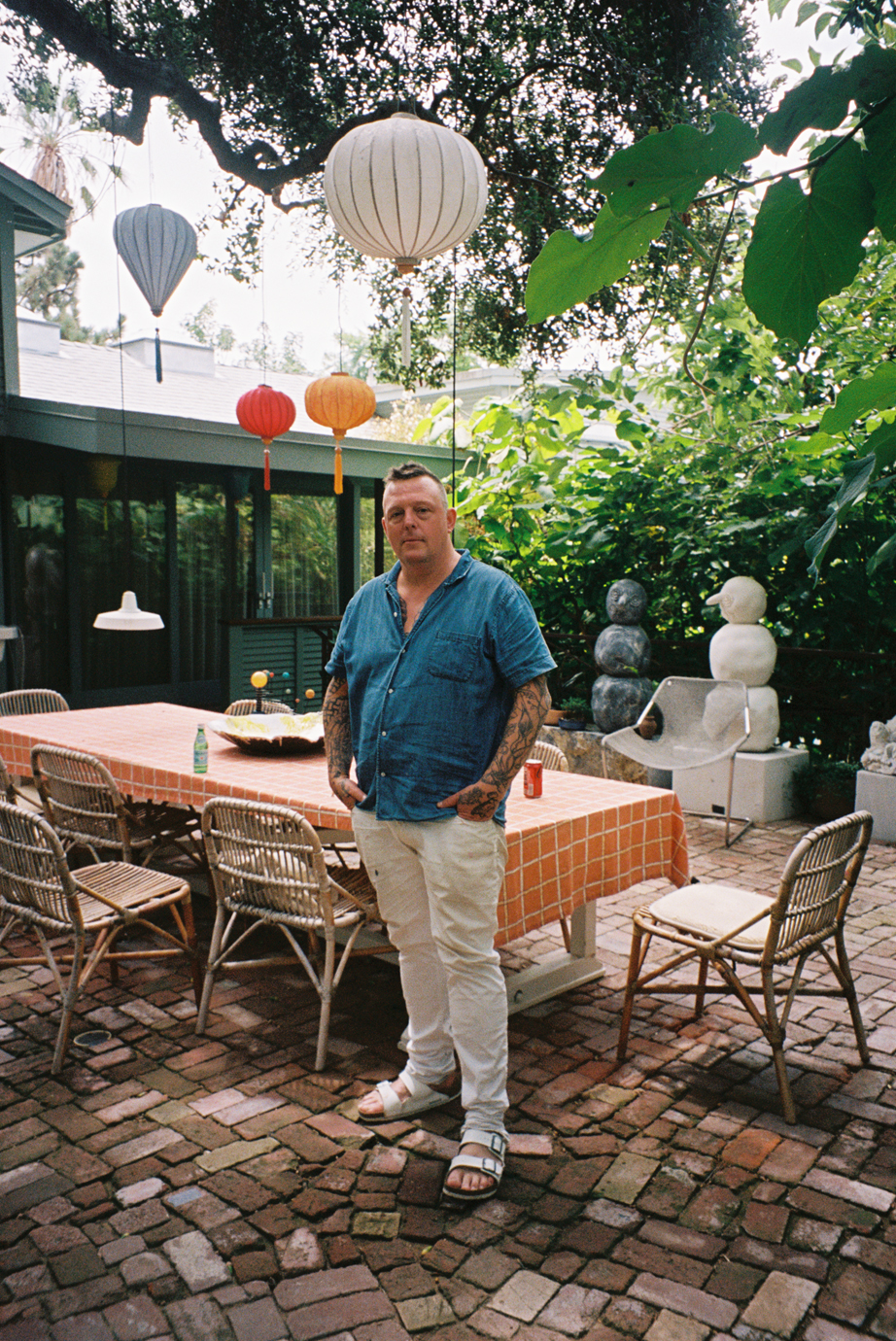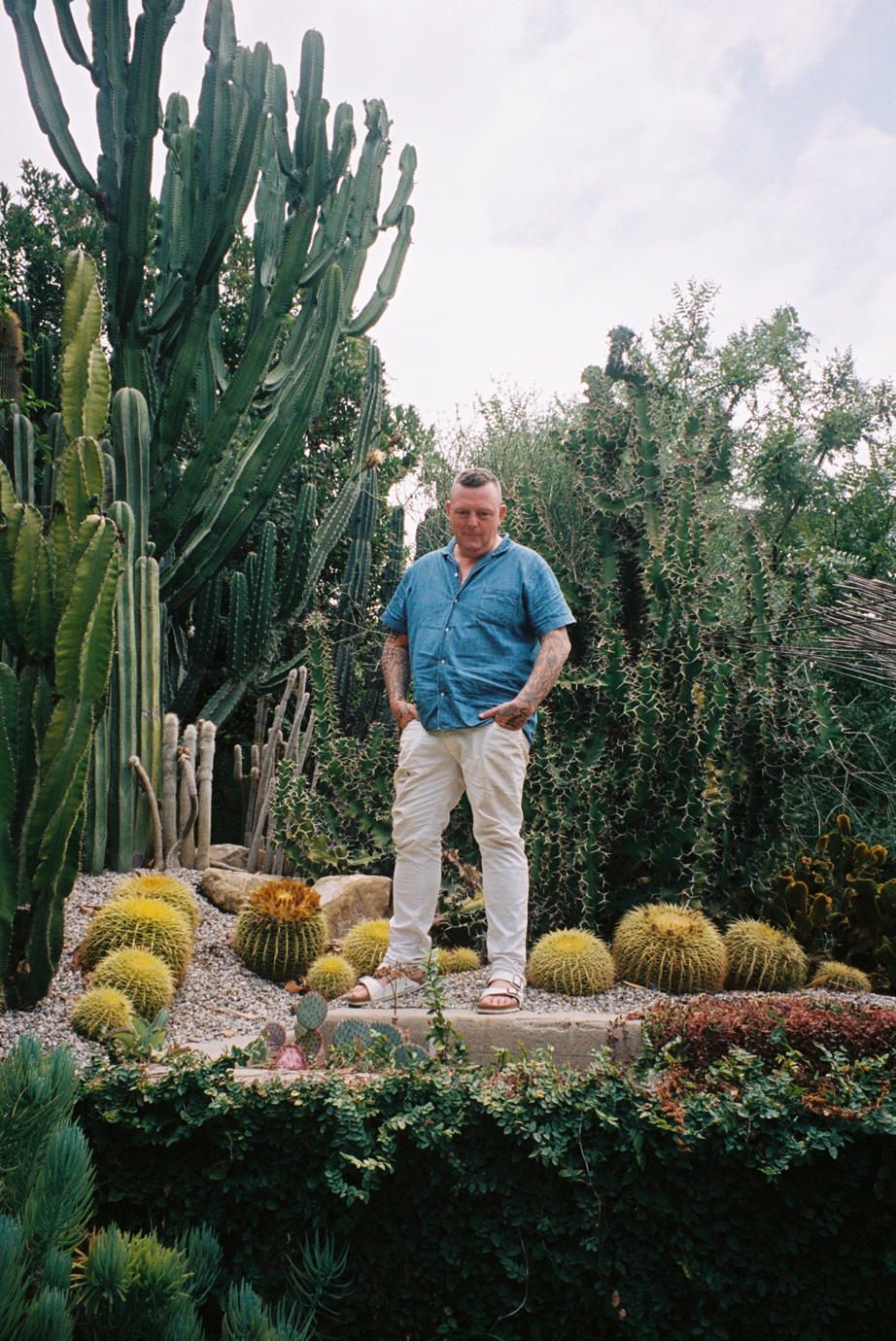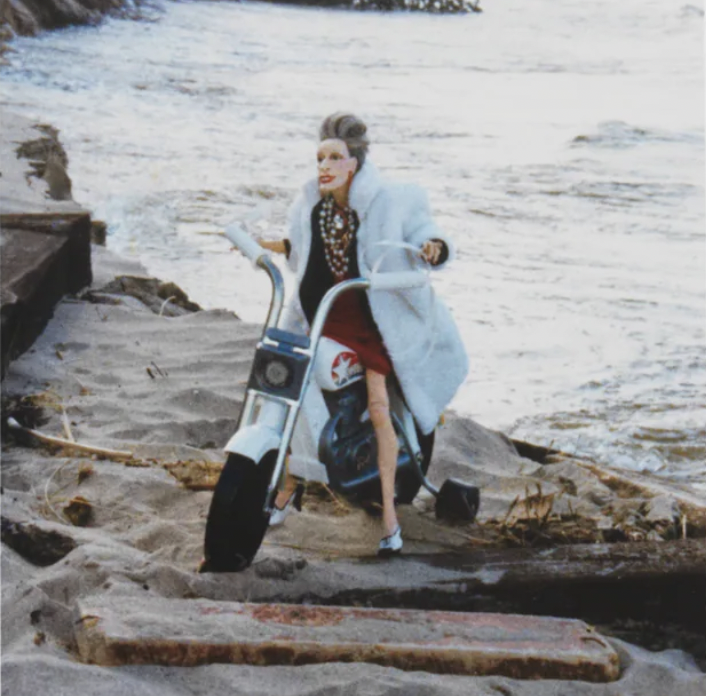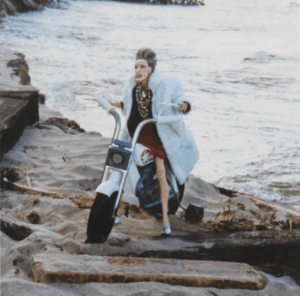
URS FISCHER: You say, to you, food is about emotions. How would you describe that emotional aspect of cooking and eating?
MINA STONE: I think I cook well when I’m in a good emotional state, and when I feel tapped into those that I’m cooking for.
UF: Is there a performative aspect to how you understand yourself as a chef?
MS: Yes, it’s funny you should ask that. Somebody else used that word recently and I was reflecting on the past when I would cook at Gavin Brown’s gallery. People would walk upstairs to the kitchen and think me working there was performance art or a happening. It always made me laugh.

UF: How do you envision a meal? Are there many moments where you improvise?
MS: I have an initial idea of what I feel inspired by and then I bring things in to make it whole. Maybe I decide on the main dish and then ask: “What are the other elements that are going to add the freshness, the texture, the color, the beauty, the nutrition to the meal to bring it all together?” There must be a balance in everything that you eat. My second book took five years to write because all the recipes were journal entries. I often take photographs and cook things repeatedly that I really like, just tasty and easy meals. Those stay with me when I sit down to write out a recipe list for a book and it ends up a reflection of things that I’ve made in a period of time that still feel relevant.
UF: How do you find the inspiration to start a new dish?
MS: I think it’s being exposed to a different kind of food, through travel or a friend or somebody that made something that I ate and liked. I bring it through my sifter and make it my own. Going to Russia was transformative because I learned a lot about food. When I lived in Greece for a year, I learned a lot about food. At the time, I often don’t even realize it’s happening. I notice it later when I incorporate those things that I was exposed to into how I cook.

UF: I know you have been a mentor to some younger chefs. When you cook with somebody else, how open are you to letting them do their thing?
MS: In a more private setting, like a dinner where I’m cooking with other people, I really like that collaboration. I love multiple people tasting a dish and saying, “More salt, less this.” I feel like then you can make something amazing that you couldn’t have made on your own. However, at the café, there isn’t as much room for that collaboration. Consistency can feel stifling sometimes, and because you don’t have access to your customers, you don’t get to see their responses.
UF: When I go to restaurants and cafés, I am comforted by food tasting the same every time. Children like a dish to always taste the same.
MS: That’s true, and they’re your toughest critic.
Craving more culture? Sign up to receive the Cultured newsletter, a biweekly guide to what’s new and what’s next in art, architecture, design and more.










 in your life?
in your life?

